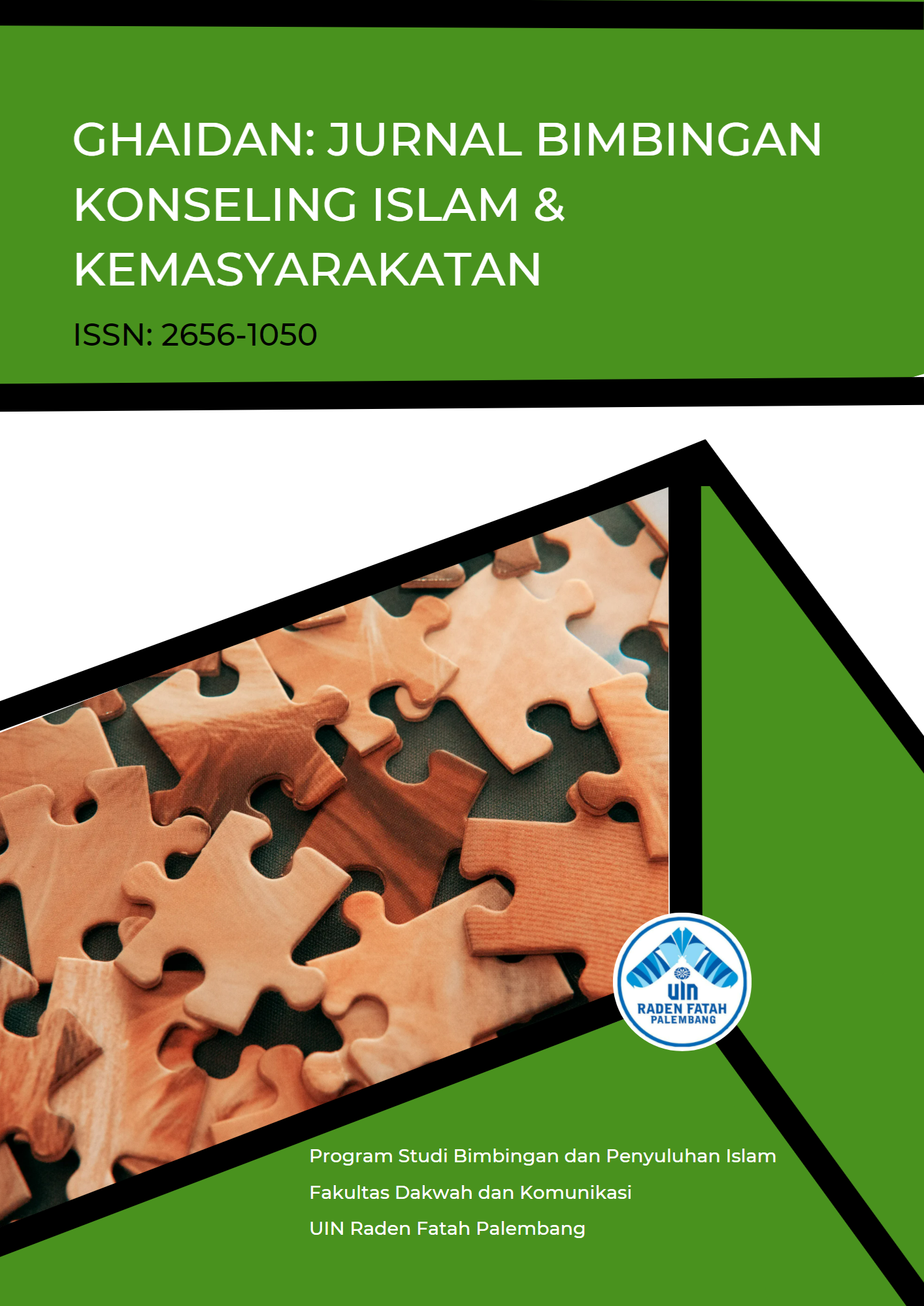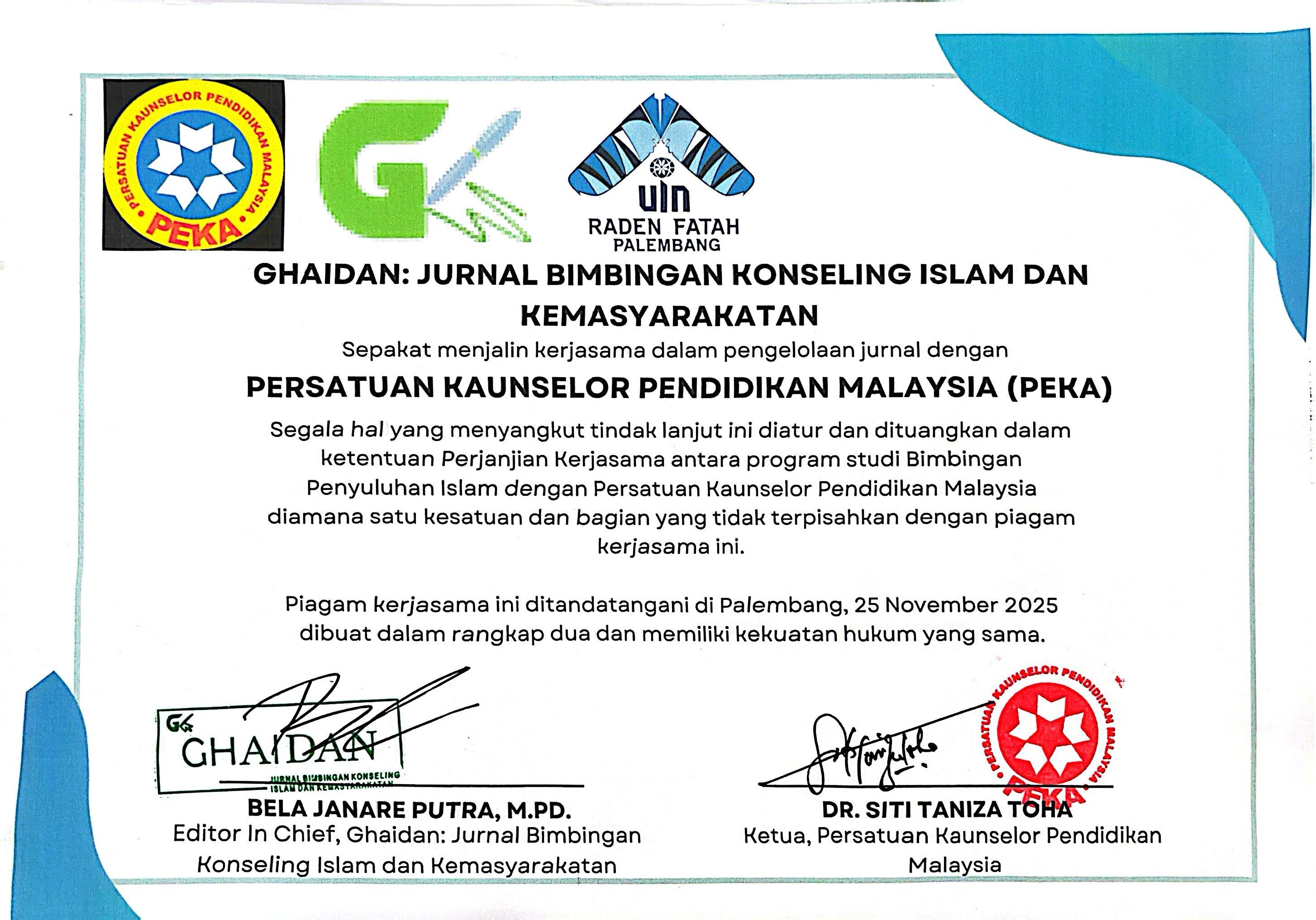Hubungan Antara Self-Compassion dan Self-Efficacy dengan Social Anxiety Siswa SMA Negeri Suku Banjar
DOI:
https://doi.org/10.19109/ceh04z68Keywords:
Self-Compassion, Self-Efficacy, Social AnxietyAbstract
The research findings indicate a significant positive correlation between self-compassion and social anxiety among Banjar State High School students, with a correlation coefficient of r = 0.396 and a p-value of 0.000, which is less than 0.05. Additionally, there is a significant positive correlation between self-efficacy and social anxiety, with a correlation coefficient of r = 0.364 and a p-value of 0.000 (p < 0.05). When examined together, self-compassion and self-efficacy show a significant combined relationship with social anxiety, yielding a correlation coefficient of r = 0.434 and a p-value of 0.000 (p < 0.05). This combined effect is stronger than the individual correlations of self-compassion (r = 0.396) and self-efficacy (r = 0.364) with social anxiety. Thus, the hypothesis stating that there is no relationship between self-compassion, self-efficacy, and social anxiety among Banjar State High School students is rejected.
References
Agusti, M. (2021). Correlation of self-efficacy to job satisfaction among the employees in Sharia Hotel in Banda Aceh (Case study in Hanifi Hotel, Banda Aceh) (Undergraduate thesis). Universitas Islam Indonesia.
Ariyati, I. (2023). Exploring the Relationship Between Public Stigma, Self-Stigma, and Counselling Help-Seeking Intentions Among Adolescents in Madrasah. COUNS-EDU: The International Journal of Counseling and Education, 8(3). https://doi.org/10.23916/0020230845330
Ariyati, I., & Aisyah, N. (2022). Pengembangan Materi Bimbingan dan Konseling Klasikal Bidang Belajar di Sekolah Menengah Pertama. Bulletin of Counseling and Psychotherapy, 4(1), 187-194. https://doi.org/10.51214/bocp.v4i2.154
Bandura, A. (1997). Self-efficacy: The exercise of control. Freeman.
Annisa, D. F. (2016). Konsep kecemasan (anxiety) pada lanjut usia (lansia). Jurnal Konselor, 5(2), 96.
Gunawan, I. N. A., Herawati, N. T., & Atmadja, A. T. (2018). Pengaruh self-efficacy, metode mengajar, dan minat terhadap keberhasilan studi mahasiswa (Studi kasus pada alumni mahasiswa jurusan akuntansi program S1 Fakultas Ekonomi Universitas Pendidikan Ganesha). JIMAT (Jurnal Ilmiah Mahasiswa Akuntansi) Undiksha, 9(2).
Hendrawan, T. P., Tjalla, A., & Hidayat, D. R. (2024). Gambaran kecemasan sosial remaja akhir. G-Couns: Jurnal Bimbingan dan Konseling, 9(1). https://doi.org/10.31316/gcouns.v9i1.6270
Hidayah, K. (2017). Hubungan konsep diri dengan kecemasan sosial pada siswa kelas 2 SMA Negeri 1 Tumpang (Undergraduate thesis). Universitas Islam Negeri Maulana Malik Ibrahim Malang.
Jeklin, A. (2016). Teori kecemasan sosial. In A. Bandura (Ed.), Self-efficacy: The exercise of control (pp. 1-23). Freeman.
Kushendar, K., Ariyati, I., & Mayra, Z. (2021). The Role of Counseling Guidance in Early Childhood Education and Their Emotional Development. Journal of Childhood Development, 1(2), 97–101. https://doi.org/10.25217/jcd.v1i2.1826
La Greca, A. M., & Lopez, N. (1998). Social anxiety among adolescents: Linkages with peer relations and friendships. Journal of Abnormal Child Psychology, 26(2), 83-94.
Pebriani, L. V., & Kusuma, P. A. (2021). Korelasi antara self-compassion dengan kecemasan sosial pada anak usia sekolah dasar di Kota Bandung. Jurnal Psikologi Sains & Profesi, 5(1).
Ma’arif, T. N. (2022). Pengaruh self-compassion terhadap penyesuaian diri pada santri remaja Pondok Pesantren Al Hamidiyyah Jombang (Undergraduate thesis). Universitas Islam Negeri Maulana Malik Ibrahim Malang.
Neff, K. D., & Germer, C. K. (2013). Self-compassion in clinical practice. Journal of Clinical Psychology: In Session, 69(8), 859-867.
Pratiwi, S. L., Ramdhani, R. N., Taufiq, A., & Sudrajat, D. (2023). Hubungan antara konsep diri dengan kecemasan sosial pada mahasiswa Bandung. Journal of Guidance and Counseling, 7(1), 93-107. https://doi.org/10.21043/konseling.v7i1.18595
Puklek, M. (2012). Social anxiety, social acceptance, and academic self-perceptions in high-school students. Drustvena Istrazivanja: Journal for General Social Issues, 21(2), 365-380. https://doi.org/10.5559/di.21.2.06
Rananto, H. W., & Hidayati, F. (2017). Hubungan antara self-compassion dengan prakrastinasi pada siswa SMA Nasima Semarang. Jurnal Empati, 6(1), 1-9.
Renggani, A. F., & Widiasavitri, P. N. (2018). Peran self-compassion terhadap psychological well-being pengajar muda di Indonesia Mengajar. Jurnal Psikologi Udayana, 5(2), 177-186.
Sa’diyah, H., Suhono, S., Pratiwi, W., Kushendar, K., & Sugiarto, S. (2023). Improving Speaking Skills of Santri through Drilling Technique and Cinema Therapy in Group Counseling of Bakmin Program. Ghaidan: Jurnal Bimbingan Konseling Islam Dan Kemasyarakatan, 7(1), 65-74. https://doi.org/10.19109/ghaidan.v7i1.17827
Sugiarto. (2023). IQ Intelligence Level Analysis of Prospective Elementary School Students as a Condition for Readiness to Learn at School. Journal of Childhood Development, 3(2), 98–108. https://doi.org/10.25217/jcd.v3i2.3873
Tukadi, T., Jannah, S. R., & Sugiarto, S. (2022). The Influence of Social-Emotional Development on Early Childhood Learning Outcomes During the Covid-19 Pandemic. Bulletin of Early Childhood, 1(2), 110–118. https://doi.org/10.51278/bec.v1i2.644
Downloads
Published
Issue
Section
License
Copyright (c) 2024 Ainun Heiriyah, Sanjaya Sanjaya, Elisa Futri, Awalia Awalia

This work is licensed under a Creative Commons Attribution-ShareAlike 4.0 International License.





